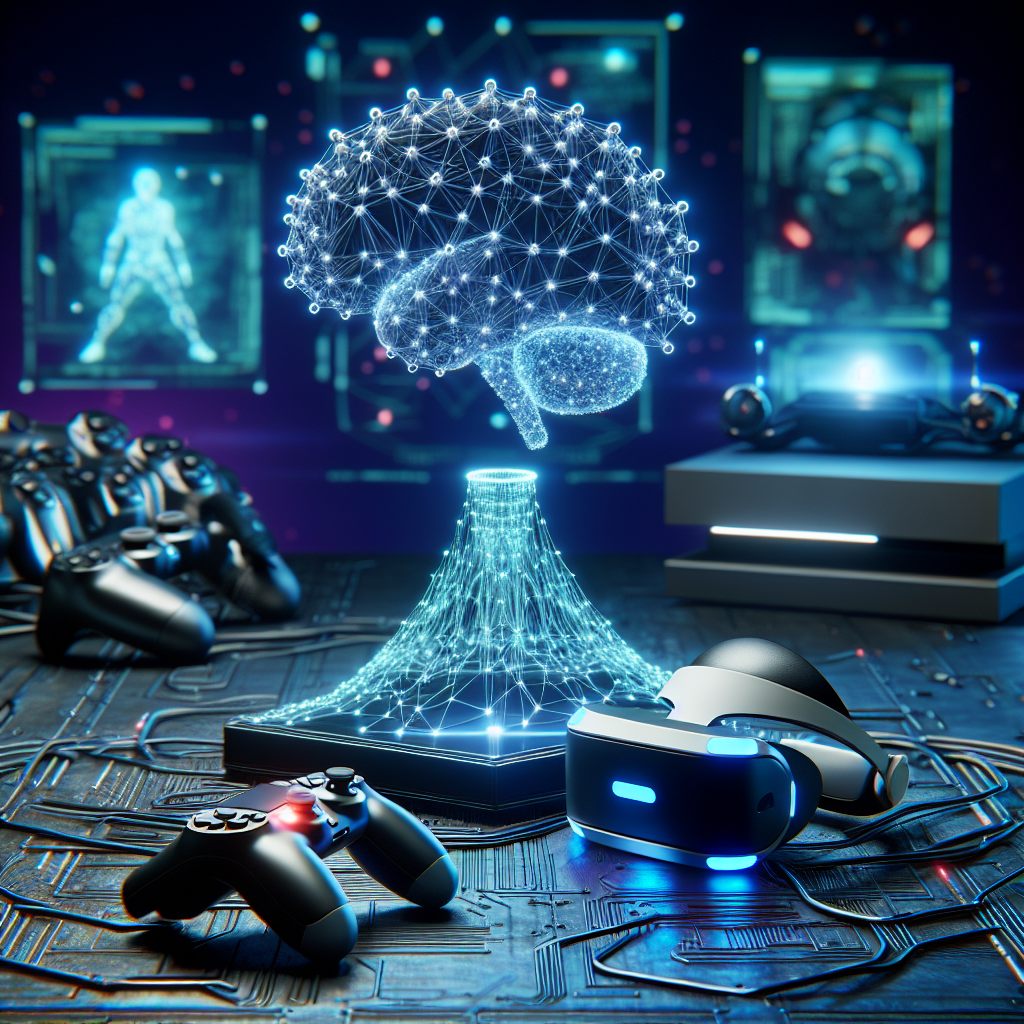Artificial Intelligence (AI) has been making significant advancements in various industries, and the gaming industry is no exception. The integration of AI technology into video games has led to more immersive experiences, enhanced gameplay mechanics, and improved player engagement. As AI continues to evolve, it is expected to play an even bigger role in shaping the future of gaming.
One of the key areas where AI has had a significant impact on gaming is in the development of non-player characters (NPCs). NPCs are characters in a game that are controlled by the game’s AI rather than by a human player. In the past, NPCs were often limited in their actions and behaviors, making interactions with them feel scripted and predictable. However, with advances in AI technology, NPCs are now able to exhibit more complex and dynamic behaviors, making them feel more like real characters.
For example, AI algorithms can now be used to create NPCs that can adapt to player actions, learn from their mistakes, and even develop their own unique personalities. This not only enhances the overall gaming experience but also adds a new layer of depth and immersion to the game world.
AI technology has also been used to improve game mechanics and level design. Game developers can now use AI algorithms to analyze player behavior and preferences, allowing them to create more personalized gaming experiences. This can include dynamically adjusting difficulty levels, creating more challenging puzzles, or even generating new content based on player interactions.
In addition, AI-powered algorithms can also be used to enhance graphics and visual effects in games. For example, AI can be used to generate realistic textures, improve lighting effects, and even create lifelike character animations. This not only makes games more visually appealing but also helps to create a more immersive gaming experience.
Another area where AI is making a big impact on gaming is in the realm of procedural generation. Procedural generation is a technique used by game developers to create game content such as levels, maps, and quests algorithmically rather than manually. AI algorithms can be used to generate vast and complex game worlds that are unique and dynamic, providing players with endless possibilities and challenges.
One of the most exciting developments in AI and gaming is the use of machine learning algorithms to create adaptive and intelligent game systems. Machine learning algorithms can analyze vast amounts of data to identify patterns and trends, allowing them to make predictions and decisions in real-time. This can be used to create more challenging and engaging gameplay experiences, as well as to personalize the gaming experience for individual players.
For example, machine learning algorithms can be used to create dynamic difficulty adjustment systems that can adapt to a player’s skill level and preferences. This ensures that players are always facing a challenge that is appropriate for their abilities, making the game more enjoyable and rewarding.
AI technology is also being used to improve player engagement and retention. By analyzing player data and behavior, game developers can create personalized experiences that keep players coming back for more. This can include recommending new games or content based on a player’s preferences, offering rewards and incentives for continued play, or even predicting when a player is likely to stop playing and offering interventions to keep them engaged.
Overall, the future of gaming looks bright with the continued integration of AI technology. As AI continues to evolve and improve, we can expect to see even more innovative and immersive gaming experiences that push the boundaries of what is possible in the virtual world.
FAQs:
Q: How is AI being used in gaming?
A: AI is being used in gaming to create more immersive experiences, enhance gameplay mechanics, improve NPCs, generate game content, improve graphics and visual effects, create adaptive game systems, and improve player engagement and retention.
Q: What are some examples of AI in gaming?
A: Examples of AI in gaming include NPCs with adaptive behaviors, procedurally generated game content, machine learning algorithms for dynamic difficulty adjustment, AI-powered graphics and visual effects, and personalized player experiences.
Q: How does AI improve player engagement in gaming?
A: AI improves player engagement in gaming by analyzing player data and behavior to create personalized experiences, offering rewards and incentives for continued play, recommending new games or content based on player preferences, and predicting when a player is likely to stop playing and offering interventions to keep them engaged.
Q: What is the future of AI in gaming?
A: The future of AI in gaming looks promising, with continued advancements in AI technology leading to more innovative and immersive gaming experiences. AI is expected to play an even bigger role in shaping the future of gaming, with the potential to create new and exciting possibilities for players and developers alike.

